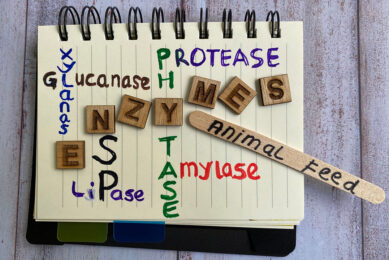Making ethanol production more efficient
Agricultural Research Service (ARS) scientists are investigating ways to avoid overburdening the corn market as ethanol production expands.
Annual US ethanol production is projected to increase from 5 billion gallons
(18.9 billion litres) in 2006 to as many as 13 billion gallons (49.2 billion
litres) in 2009. So what options will ethanol producers have? One solution is to
increase conversion efficiency.
Enyzmes
David
Johnston, a food technologist in the ERRC’s Crop Conversion Science and
Engineering Research Unit, is investigating new processes using protease enzymes
from microbial and fungal sources to make ethanol more efficiently. He has found
that the enzymes make more nutrients available for the yeast, expediting
fermentation of sugars. Protease enzymes can also facilitate the process of
dewatering the solids that remain after the ethanol has been
extracted.
Working with Vijay Singh, an agricultural engineer at the
University of Illinois, Johnston conducted a field trial at a small wet-milling
facility in Panang, Malaysia. They soaked US corn in water for several hours and
then applied the enzymes (provided by biotechnology company Genencor
International Inc., of Palo Alto, Calif.). The scientists found that adding
enzymes during processing increased starch recovery, just as it had in
laboratory trials.
The starches can be used in more than 1,000 different
products, from paper and sheet rock to high fructose corn syrup and ethanol.
Economic analysis will be the next step, and Johnston and Singh are planning to
replicate the trial at several more commercial facilities.
This is one of
many ERRC research projects related to improving understanding and production of
biofuels. Read more about the research in the April 2007 issue of Agricultural Research magazine.
Related folder:
Dossier AllAbout Bio Energy
Related
website:
ARS
To receive the AllAboutFeed newsletter click
here.











